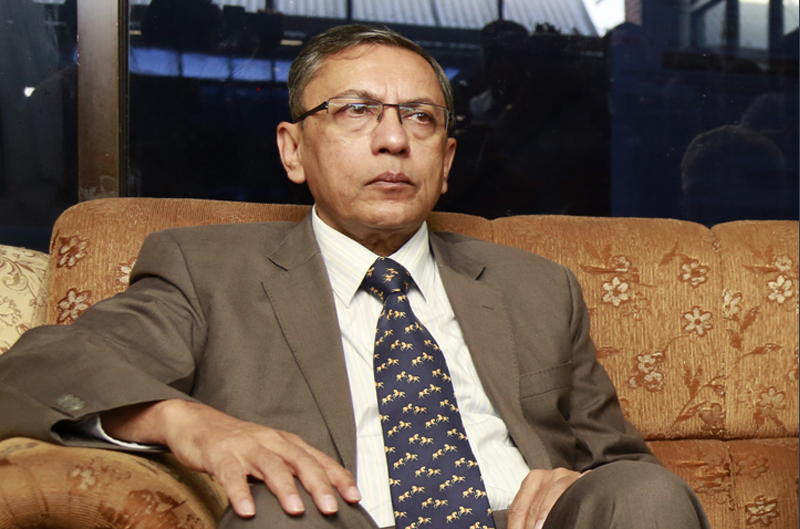Peace, stability India’s only concern in Nepal: Rae
Kathmandu, January 6
Ambassador of India to Nepal Ranjit Rae today said India’s only concern in Nepal was to see peace and stability restored in the country.
Addressing an interaction on ‘Nepal India friendly relations and present context’ by Nepal-India Women Friendship Society here today, Ambassador Rae said he was surprised that a big Nepali leader said that India wanted disintegration of Nepal.
“We are concerned solely about peace and stability in Nepal. Neither do we want monarchy, nor Hindu state or disintegration of Nepal.
If Nepal remains unstable, it will pose challenges to India as well,” he said. The ambassador said statements against India would do no good to bilateral relations nor would it serve Nepal’s interests.
He said India-Nepal relations should be development-oriented and if that happened many problems would be resolved at once.
Vice Chair of Tarai Madhes Democratic Party Hridayesh Tripathi said India’s support to forces fighting for democracy and justice earned it both supporters and opponents in Nepal and the Indian ambassador should not be worried just because India was blamed to have supported the Madhesis.
He said if Madhes movement failed for any reason, it would strengthen the secessionist forces.
Co-chair of Sadbhawana Party Laxman Lal Karna said those leaders, who were claiming that the new constitution was the best document, should explain to the public why a large section of people were agitating against it and why the government had not been able to implement the new constitution.
He urged India to mediate in the current standoff between the Madhesi forces and the government/major parties.
He said Khas Arya people who had 80 per cent representation in government services were given reservation under five clusters in the new constitution.
Karna said Madhesi forces were ready to leave the border entry points but the state must guarantee that it would not kill the protesters on the streets.
Former Speaker Damannath Dhungana said the new constitution did not end discrimination against marginalised communities and unless that happened, constitution’s longevity could not be ensured.
Dhungana said the new constitution should have respected the mandates of 2006 popular movement and movements launched by Madhesi Tharus, Janajatis and other marginalised groups but the constitution merely respected the electoral mandate of the second Constituent Assembly.
Advocate Dipendra Jha said Nepali nationalism was based on anti-India sentiment which needed to be redefined.
New Force campaign leader Khim Lal Devkota said there was no alternative to addressing Madhes movement.
Nepali Congress leader Minendra Rijal said Madhes agitation remained unaddressed for long because of the ruling parties’ arrogance.
CPN-UML leader Pradip Gyawali said mistrust engulfed the bilateral relations when leaders in Nepal felt that India was not happy with the new constitution of Nepal.
He said it would be good if the parties agreed to resolve the question of boundary by forming a separate mechanism.
Society’s Chair Chanda Chaudhary said Nepal-and India were bound by social, economic, cultural and religious ties and both the countries should strive to further cement it.






